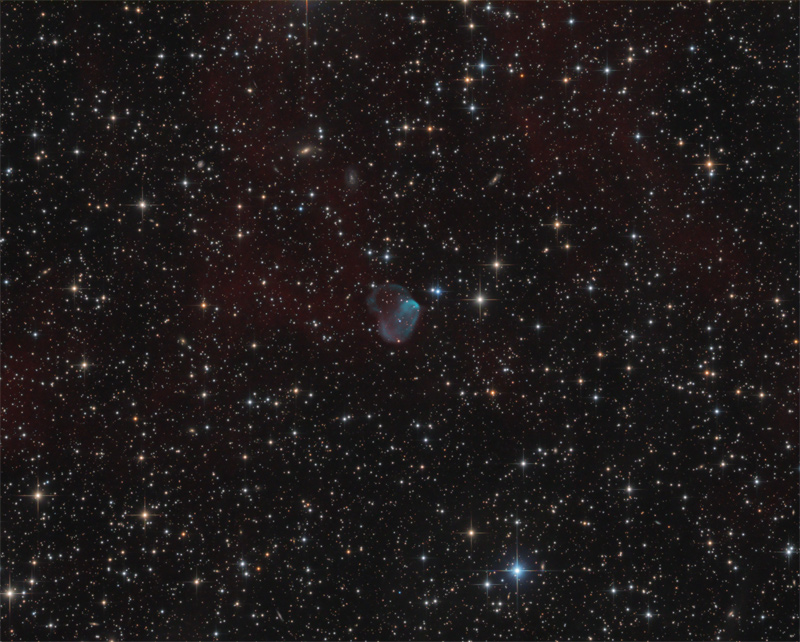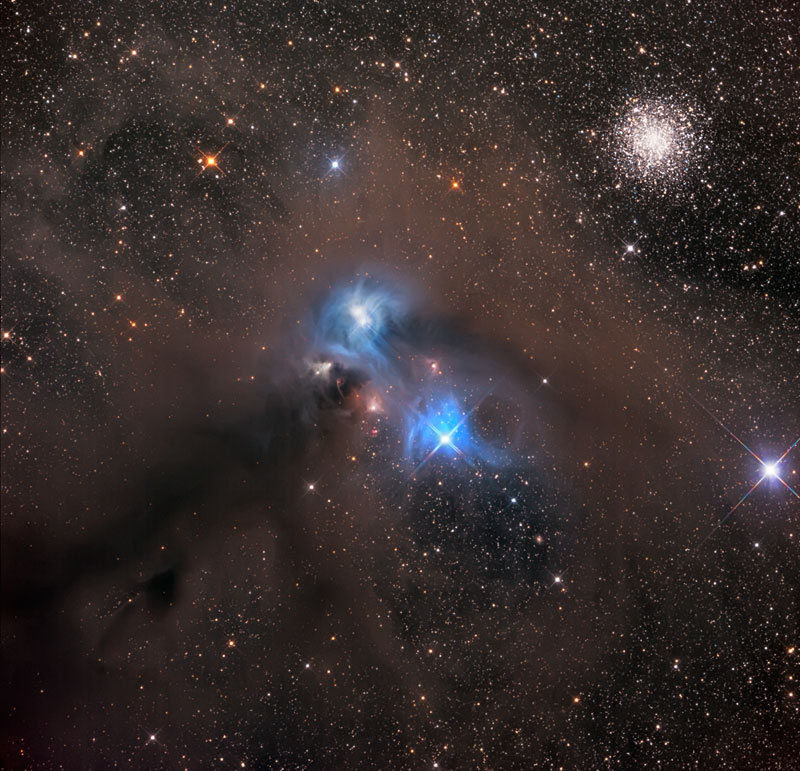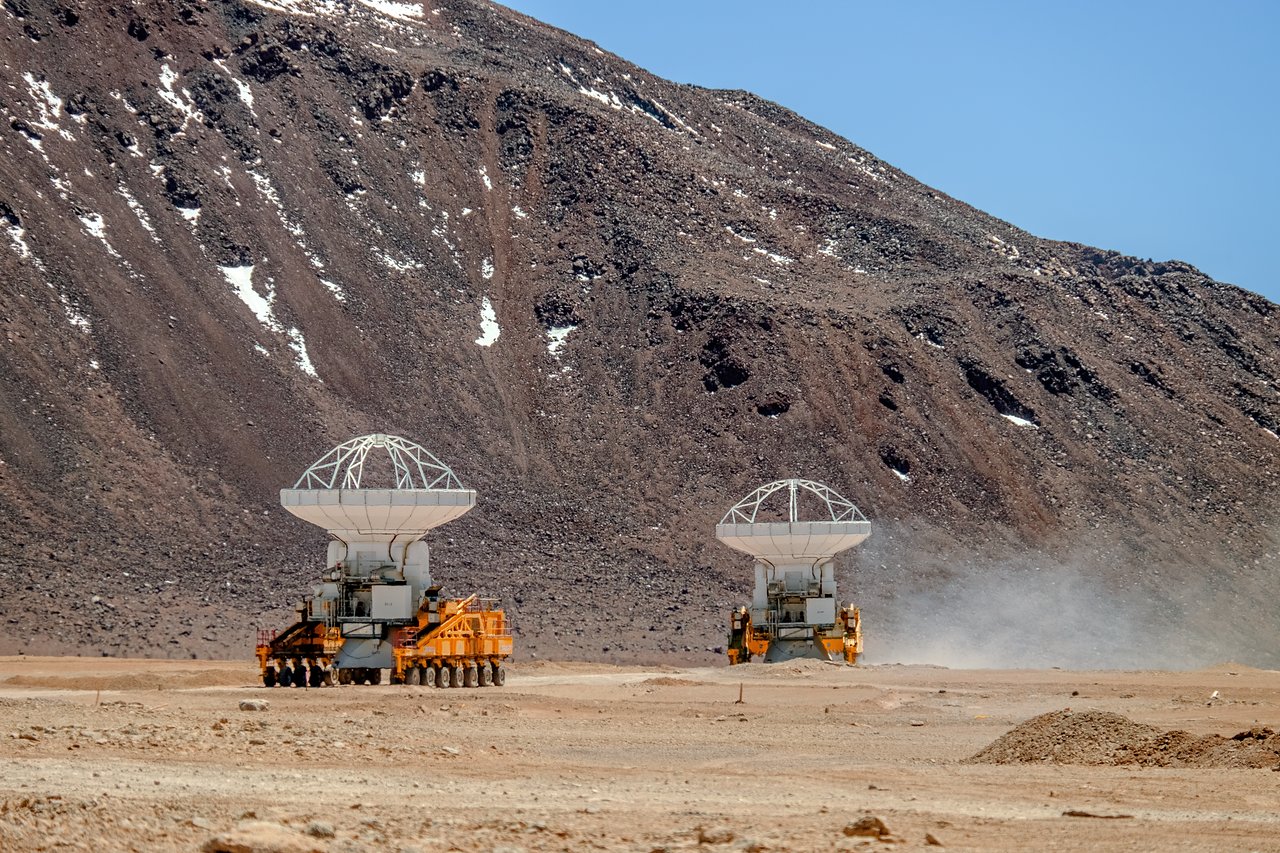Page 1 of 2
Found Images: 2018 June
Posted: Sat Jun 02, 2018 5:10 pm
by Sandgirl
Have you seen a great image or video somewhere that you think would make a great APOD? Nominate it for APOD! Please post as much information here as you have about the image/video with a link to any source(s) for it you know of here, and the editors will take a look.
When posting the image itself, please do not post anything larger than a thumbnail here; please honor the copyright holder's copyright.
Please keep hotlinked images under 400K.
Thank you!
<< Previously
Re: Found Images: 2018 June
Posted: Sun Jun 03, 2018 8:19 am
by starsurfer
NGC 2467
https://www.hansonastronomy.com/ngc2467
Copyright: Mark Hanson, S. Mazlin, R. Parker ,W. Keller, T. Tse, P. Proulx, R. Vanderbei, M. Elvov; SSRO/PROMPT/CTIO
Re: Found Images: 2018 June
Posted: Sun Jun 03, 2018 8:22 am
by starsurfer
NGC 317
http://www.caelumobservatory.com/gallery/n317.shtml
Copyright: Adam Block/Mount Lemmon SkyCenter/University of Arizona
Re: Found Images: 2018 June
Posted: Sun Jun 03, 2018 8:26 am
by starsurfer
ESO: Inspired by Interstellar
Posted: Mon Jun 04, 2018 12:48 pm
by bystander
Inspired by Interstellar
ESO Picture of the Week | 2018 Jun 04
ESO’s
La Silla Observatory in Chile is unavoidably photogenic from every angle — including unusual and creative perspectives such as this one!
This unique panoramic view was captured by
ESO Photo Ambassador Petr Horálek. “I was wondering if it was possible to capture the mystical colours of the Universe without complicated equipment,”
he explained, adding that he was initially inspired by one of the posters released to accompany Christopher Nolan’s film
Interstellar. “At La Silla, you can really feel — and capture — interstellar moments!”
Petr evidently succeeded in imaging the Universe in all its beauty. The majestic band of the Milky Way galaxy blazes across the sky, creating a cosmic bridge between two of La Silla’s resident telescopes: the
ESO 3.6-metre telescope (left) and the
Swedish-ESO Submillimetre Telescope (right). The
Large and Small Magellanic Clouds — a duo of nearby galaxies — are captured together sitting “above” the galactic plane in the upper right corner of the image. The bright splash of red in the middle of the frame is the beautiful
Gum Nebula, and the particularly bright dot in the lower left of the image is the planet
Jupiter.
HEIC: Threads of Blue (IC 4870)
Posted: Mon Jun 04, 2018 12:59 pm
by bystander
Threads of Blue
ESA Hubble Picture of the Week | 2018 Jun 04
A ripple of bright blue threads through this galaxy like a misshapen lake system. The foreground of this image is littered with nearby stars with their gleaming
diffraction spikes. A keen eye can also spot a few other galaxies that, while masquerading as stars at first glance, reveal their true nature on closer inspection.
The central galaxy streaked with colour,
IC 4870, was discovered by
DeLisle Stewart in 1900 and is located approximately 28 million light-years away. It contains an
active galactic nucleus, or AGN: an extremely luminous central region so alight with radiation that it can outshine the rest of the galaxy put together. AGNs emit radiation across the complete
electromagnetic spectrum, from radio waves to gamma-rays, produced by the action of a central
supermassive black hole that is devouring material getting too close to it. IC 4870 is also a
Seyfert galaxy, a particular kind of AGN with characteristic
emission lines.
IC 4870 has been imaged by Hubble for several studies of nearby active galaxies. By using Hubble to explore the small-scale structures of AGN in nearby galaxies, astronomers can observe the traces of collisions and mergers, central galactic bars, nuclear starbursts, jets or outflows, and other interactions between a galactic nucleus and its surrounding environment. Images such as this can help astronomers understand more about the true nature of the galaxies we see throughout the cosmos.
Re: Found Images: 2018 June
Posted: Tue Jun 05, 2018 2:40 pm
by starsurfer
Re: Found Images: 2018 June
Posted: Tue Jun 05, 2018 2:42 pm
by starsurfer
Re: Found Images: 2018 June
Posted: Tue Jun 05, 2018 5:58 pm
by Ann
Wow, that thing looks like a mean face with a huge mouth chomping down on something, and blue spittle (or something) is coming out of the corners of his mouth! What a slob!
Ann
Re: Found Images: 2018 June
Posted: Wed Jun 06, 2018 9:56 am
by starsurfer
Ann wrote: ↑Tue Jun 05, 2018 5:58 pm
Wow, that thing looks like a mean face with a huge mouth chomping down on something, and blue spittle (or something) is coming out of the corners of his mouth! What a slob!
Ann
I think it looks rather beautiful, a strange but lovely cosmic flower.
Re: Found Images: 2018 June
Posted: Wed Jun 06, 2018 9:59 am
by starsurfer
Re: Found Images: 2018 June
Posted: Wed Jun 06, 2018 10:01 am
by starsurfer
Re: Found Images: 2018 June
Posted: Wed Jun 06, 2018 11:00 am
by Ann
starsurfer wrote: ↑Wed Jun 06, 2018 9:56 am
I think it looks rather beautiful, a strange but lovely cosmic flower.
Don't get me wrong, I like the picture and the galaxy! But I do think it looks like a cosmic shark-monster of some kind.
Ann
Re: Found Images: 2018 June
Posted: Fri Jun 08, 2018 2:46 pm
by starsurfer
Re: Found Images: 2018 June
Posted: Sat Jun 09, 2018 1:26 pm
by starsurfer
Re: Found Images: 2018 June
Posted: Sun Jun 10, 2018 2:49 pm
by starsurfer
NGC 6503
http://astro-koop.de/?attachment_id=1985
Copyright: Stefan Heutz, Wolfgang Ries and Michael Breite
ESO: Gentle Giants of Chajnantor
Posted: Mon Jun 11, 2018 1:22 pm
by bystander
Gentle Giants of Chajnantor
ESO Picture of the Week | 2018 Jun 11
Many telescopes are formed of multiple mirrors or antennas, not just one. ESO’s Very Large Telescope (
VLT), located at ESO’s Paranal Observatory in Chile, is a prime example. The VLT comprises four main telescopes, and four smaller, movable auxiliary telescopes — eight individual structures in total. However, even this is dwarfed by the Atacama Large Millimeter/submillimeter Array (
ALMA), which sits atop the
Chajnantor plateau in the Chilean Andes — and comprises a whopping 66 antennas!
Even individually, the
ALMA antennas are impressive in size. The Chajnantor plateau itself is also located at an altitude of 5000 metres, with its Operations Support Facility (OSF) at a (still considerable) altitude of 2900 metres. As the antennas are not built up on the plateau, this required an entirely new approach to transporting each of the constituent antennas from the OSF up to Chajnantor. Enter Otto and Lore!
Designed and built especially for the job, Otto and Lore are the names of the two
ALMA Transporters — the two yellow vehicles pictured here. The duo possess impressive features; at 20 metres long, 10 metres wide and with 28 wheels each, these machines are built not just to survive in the harsh environment of the
Atacama Desert, but to thrive in it! While rugged and powerful, they also possess a delicate touch, and are able to position each antenna with astonishing millimetre accuracy.
HEIC: Strings of Homeless Stars
Posted: Mon Jun 11, 2018 1:38 pm
by bystander
Strings of Homeless Stars
ESA Hubble Picture of the Week | 2018 Jun 11
This sparkling
Picture of the Week features a massive
galaxy cluster named
RXC J0232.2-4420. This image was taken by Hubble’s Advanced Camera for Surveys (
ACS) and Wide-Field Camera 3 (
WFC3) as part of an observing programme called
RELICS (Reionization Lensing Cluster Survey). RELICS imaged 41 massive galaxy clusters with the aim of finding the brightest distant galaxies for the forthcoming NASA/ESA/CSA James Webb Space Telescope (
JWST) to study.
The enormous gravitational influence of such clusters distorts the space around them in such a way that they can be used as
giant cosmic lenses that magnify distant background galaxies. Studying some of the earliest galaxies in the Universe will tell us more about our cosmic origins.
RXC J0232.2-4420 also featured in a study that focused on galaxy clusters that are especially luminous sources of X-rays . The study searched for diffuse light around the
brightest galaxies in the clusters, among the most massive galaxies in the Universe. This diffuse light comes from intergalactic stars strung out between the constituent galaxies of the cluster and the aim of the study was to explore various theories for the origins of these stars. One theory is that that may have been stripped from their host galaxies during mergers and interactions.
Re: Found Images: 2018 June
Posted: Mon Jun 11, 2018 5:02 pm
by starsurfer
Hickson 68
http://afesan.es/Deepspace/slides/Hicks ... ci%29.html
Copyright: Antonio Sánchez
The galaxy on the left is NGC 5371.
Re: Found Images: 2018 June
Posted: Tue Jun 12, 2018 1:43 pm
by starsurfer
Re: Found Images: 2018 June
Posted: Wed Jun 13, 2018 6:37 pm
by starsurfer
Re: Found Images: 2018 June
Posted: Wed Jun 13, 2018 6:39 pm
by starsurfer
Jellyfish Nebula (IC 443)
https://www.astrobin.com/243808/
Copyright: Olly Penrice
Re: Found Images: 2018 June
Posted: Wed Jun 13, 2018 6:53 pm
by starsurfer
Re: Found Images: 2018 June
Posted: Sat Jun 16, 2018 10:22 am
by starsurfer
NGC 362
http://www.chart32.de/index.php/component/k2/item/265
Copyright: CHART32
Processing: Bernd Flach-Wilken
Re: Found Images: 2018 June
Posted: Sun Jun 17, 2018 3:07 pm
by starsurfer







